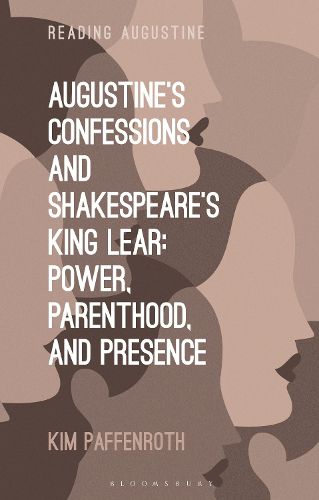Readings Newsletter
Become a Readings Member to make your shopping experience even easier.
Sign in or sign up for free!
You’re not far away from qualifying for FREE standard shipping within Australia
You’ve qualified for FREE standard shipping within Australia
The cart is loading…






Paffenroth returns to two of the most quintessentially commanding yet vulnerable protagonists in the Western canon - Augustine, the real life, fifth century bishop of Hippo, known to us mostly through his own telling of his life in Confessions; and King Lear, the legendary king of Briton, known to us mostly from Shakespeare's version of his tragic end.
Having examined problems addressed in both works of love, language, nature, and reason, Paffenroth here picks up more purely relational matters: both protagonists wield (or have wielded) power over others, yet struggle to learn its right application; both raise children, but have deeply problematic relations with their children, their partners, and (in the case of Augustine at least) their parents; neither has an intuitive or unproblematic relationship with a fully present God or gods - Augustine struggles mightily to have such, while Lear cries out to heaven but it is unclear he ever gets a reply. As different as the books and men are, how they relate to women and God shows illuminating and complementary points of comparison.
$9.00 standard shipping within Australia
FREE standard shipping within Australia for orders over $100.00
Express & International shipping calculated at checkout
Paffenroth returns to two of the most quintessentially commanding yet vulnerable protagonists in the Western canon - Augustine, the real life, fifth century bishop of Hippo, known to us mostly through his own telling of his life in Confessions; and King Lear, the legendary king of Briton, known to us mostly from Shakespeare's version of his tragic end.
Having examined problems addressed in both works of love, language, nature, and reason, Paffenroth here picks up more purely relational matters: both protagonists wield (or have wielded) power over others, yet struggle to learn its right application; both raise children, but have deeply problematic relations with their children, their partners, and (in the case of Augustine at least) their parents; neither has an intuitive or unproblematic relationship with a fully present God or gods - Augustine struggles mightily to have such, while Lear cries out to heaven but it is unclear he ever gets a reply. As different as the books and men are, how they relate to women and God shows illuminating and complementary points of comparison.